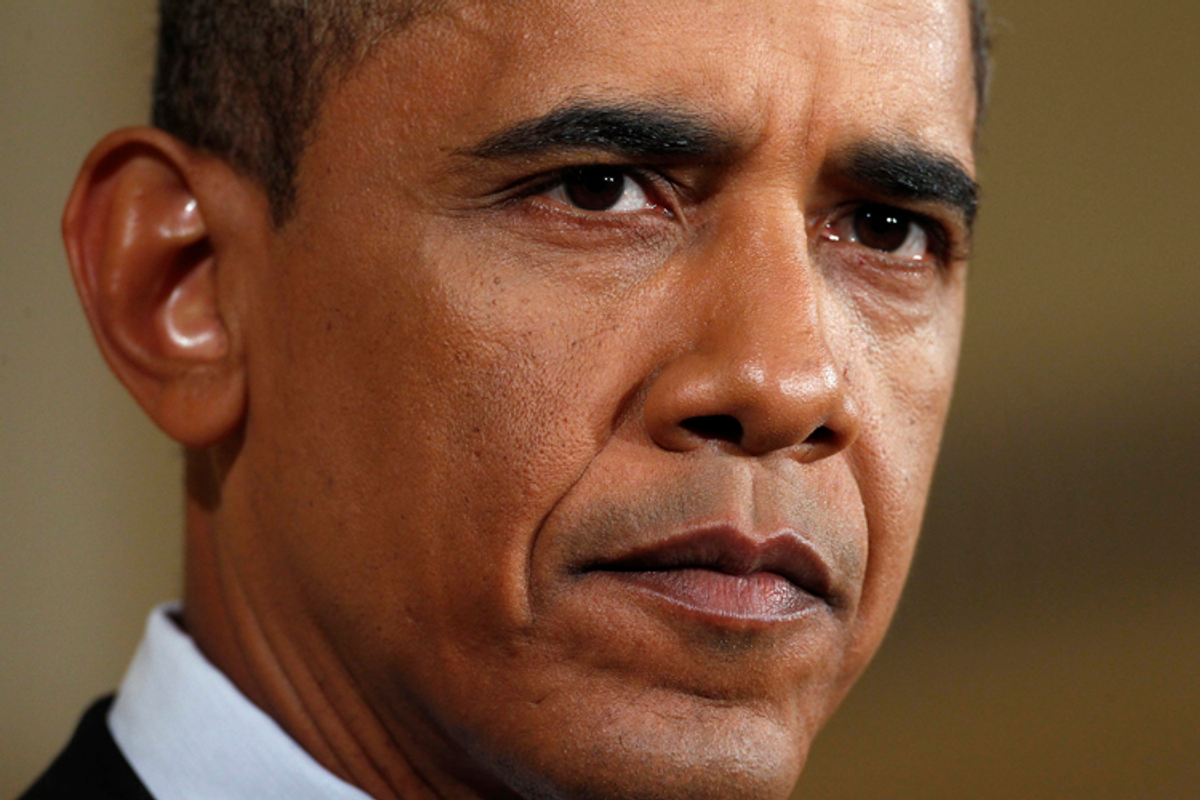Barack Obama is a lot of things -- eloquent, dissembling, conniving, intelligent and, above all, calm. But one thing he is not is weak.
This basic truth is belied by the meager Obama criticism you occasionally hear from liberal pundits and activists. They usually stipulate that the president genuinely wants to enact the progressive agenda he campaigned on, but they gently reprimand him for failing to muster the necessary personal mettle to achieve that goal. In this mythology, he is "President Pushover," as the New York Times columnist Paul Krugman recently labeled him.
This story line is a logical fallacy. Most agree that today's imperial presidency almost singularly determines the course of national politics. Additionally, most agree that Obama is a brilliant, Harvard-trained lawyer who understands how to wield political power.
Considering this, and further considering Obama's early congressional majorities, it is silly to insist that the national political events during Obama's term represent a lack of presidential strength or will. And it's more than just silly -- it's a narcissistic form of wishful thinking coming primarily from liberals who desperately want to believe "their" president is with them.
Such apologism, of course, allows liberals to avoid the more painful truth that Obama is one of America's strongest presidents ever and is achieving exactly what he wants.
Obama is not a flaccid Jimmy Carter, as some of his critics insist. He is instead a Franklin Delano Roosevelt -- but a bizarro FDR. He has mustered the legislative strength of his New Deal predecessor -- but he has channeled that strength into propping up the very forces of "organized money" that FDR once challenged.
On healthcare, for instance, Obama passed a Heritage Foundation-inspired bailout of the private health insurance industry, all while undermining other more-progressive proposals. On foreign policy, he escalated old wars and initiated new ones. On civil liberties, he not only continued the Patriot Act and indefinite detention of terrorism suspects but also claimed the right to assassinate American citizens without charge.
On financial issues, he fought off every serious proposal to reregulate banks following the economic meltdown; he preserved ongoing bank bailouts; and he resisted pressure to prosecute Wall Street thieves. On fiscal matters, after extending the Bush tax cuts at a time of massive deficits, he has used the debt ceiling negotiations to set the stage for potentially massive cuts to Social Security and Medicare -- cuts that would be far bigger than any of his proposed revenue increases.
As hideous and destructive as it is, this record is anything but weak. It is, on the contrary, demonstrable proof of Obama's impressive political muscle, especially because polls show he has achieved these goals despite the large majority of Americans who oppose them.
Importantly, though, Obama himself has not suffered from equally negative polling numbers. While his approval rating is not terrific, he is in decent shape for reelection -- and, more significantly, he has suffered only a minimal erosion of Democratic support. He is relatively popular, in other words, despite advocating wildly unpopular policies. Thanks to that reality, every one of his stunning legislative triumphs now has the previously unprecedented imprimatur of rank-and-file Democratic support.
In forging such bipartisan complicity with what were once exclusively right-wing Republican objectives, Obama has achieved even more than what he fantasized about when he famously celebrated a previous bizarro FDR. In an illustrative 2008 interview with a Nevada newspaper, Obama lauded Ronald Reagan for "chang[ing] the trajectory of America" and "put[ting] us on a fundamentally different path."
Reagan was a truly strong executive -- but the Gipper was nothing compared to our current president.



Shares